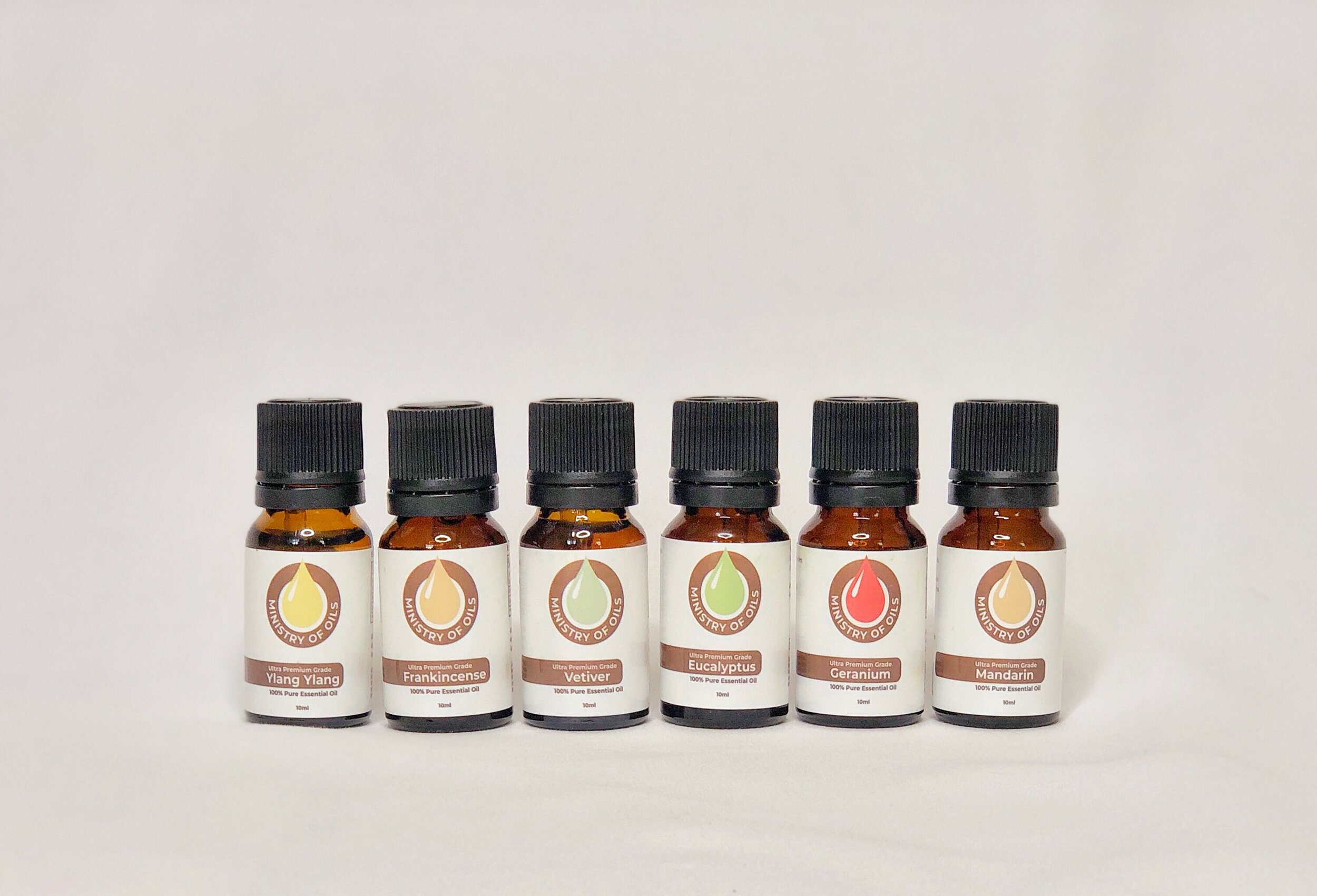How are Essential Oils Graded?
/…And do essential oils actually do anything?
There are a T O N of resources & companies out there spouting “information” about essential oils these days.
There are claims about the healing properties of essential oils. How you can use essential oils for aromatherapy. How some essential oils might even have cancer-fighting effects (1).
However, I’ve been calling bullshit on this for a while.
It’s not that I’m not open to “weird” healing methods; in fact, I usually embrace them.
My problem is that many of the information sources about essential oils are promoting one sort of MLM company or another. And in the essential oil industry in particular, there is NO regulation as to how these large companies are mass-producing their product.
In other words, if you know how to cut costs and get people to sell for you… you can start an essential oils company that’s not held up to any government standards.
What is the best form of an essential oil?
This resource from Sustainable Baby Steps (2) about how to vet your essential oils is a great place to start.
I’ve been confused by the verbiage surrounding oils for a while, too. In fact, that’s been a big reason why I haven’t delved into this realm already.
It just seemed like a lot of work I didn’t want to do on yet another alternative health rabbit hole.
But actually, the labels for oils aren’t too hard to discern. They’re pretty similar to food labels.
There are 3 main grades for Essential Oils, as described by Home Made Lovely (3). That is my main source in describing them to you here:
Grade A Essential Oils
These are the main reason I’ve been confused about the varying grades for long.
Any essential oil labeled as Grade A is:
Organic
Therapeutic grade
Strained directly from the plant
Not cut with carrier oils / other tincture options
Cooled at the proper temperatures
Sometimes, though, a company won’t put “Grade A” on their bottle.
They will instead label it as “organic” or “therapeutic,” because those phrases are more commonly understood. So, if anything is labeled with any of those titles… it’s a Grade A essential oil.
Grade A essential oils are the most potent, and therefore you need to be careful with direct skin application.
It’s smart to use them in a diffuser, with a high-quality carrier oil, or for aromatherapy.
Grade B Essential Oils
Grade B essential oils may contain synthetic ingredients. This can mean anything from a quality carrier oil to more sinister ingredients, like preservatives.
They are not guaranteed organic and can therefore also contain pesticides.
They are technically considered “food grade,” but I honestly don’t like pesticides in my food, so… I wouldn’t choose to cook with them.
Grade C Essential Oils
Grade C essential oils definitely contain synthetic compounds as well as the actual essential oil.
Basically, the only real use for Grade C essential oils is their fragrance. These are commonly used in body care products.
But again… I’m an ingredient snob, so I’d probably steer clear of these as well.
Things to remember about Essential Oils
So, some of my key takeaways when learning about this weird world of oils are:
1. Know the distillation process. (4)
If an oil is extracted using chemicals of any sort, it compromises the quality of the oil and you can’t really expect it to bring you any of the “healing properties” you might be trying to use it for.
2. Check the label to see whether the oil is pure or blended with something.
If there are any other ingredients in the bottle besides the pure oil, it’s cut with something. Depending on your goals, this might not be optimal.
3. Order from a trusted source.
There are several MLM companies out there mass-producing and selling essential oils.
Some of them are legitimately good products. Some of them are not.
Make sure to read the fine print about their methods of extraction & storage.
Affordable, high-quality essential oils
Okay… now that I’ve clarified basic understanding of essential oils as a whole, I want to introduce you to a company that’s doing them better than any other that I’ve found so far.
My friends at Ministry of Oils sell only 100% Grade A oils direct to consumer. They were kind enough to send me a sample pack of some of their favorite strands to learn more about.
Ministry of Oils is NOT an MLM company like many of the others. Plus, their prices are the best I’ve ever seen on Grade A essential oils.
That said… I fully stand by supporting them in this article and think you will love doing the same!
If you’d like to check them out at a stupidly cheap rate, click here to get 3 bottles of essential oils for $1 each. That’s a $3 purchase on top-quality, Grade A essential oils!
And for more on essential oil grading, as well as Ministry of Oils, make sure to check out the video at the top of this article.
Look out for some in-depth blogs about the 6 oils I was sent to try out, too! There’s so much research on them, I needed to make this into a series… wow!
Click here to stay up to date when the next Flabs to Fitness articles are published.
Sources
(1) Faruk, H. et. al. (May 2019). Frankincense essential oil suppresses melanoma cancer through down regulation of BCL-2/BAX cascade signaling and ameliorate hepatotoxicity via phase I and II drug metabolic enzymes. School of Pharmacology & Pharmaceutical Science. Retrieved from: https://pure.ulster.ac.uk/en/publications/frankincense-essential-oil-suppresses-melanoma-cancer-through-dow.
(2) N.a. (n.d.) What to look for in an essential oil company. Sustainable Baby Steps. Retrieved from: http://www.sustainablebabysteps.com/essential-oil-company.html
(3) Acheson, S. (n.d.). 3 different grades of essential oils – plus 13 top essential oils for beginners. Retrieved from: https://homemadelovely.com/different-grades-of-essential-oils-plus-the-top-essential-oils-for-beginners/
(4) West, H. (Sept. 30, 2019). What are essential oils, and do they work? Healthline. Retrieved from: https://www.healthline.com/nutrition/what-are-essential-oils






